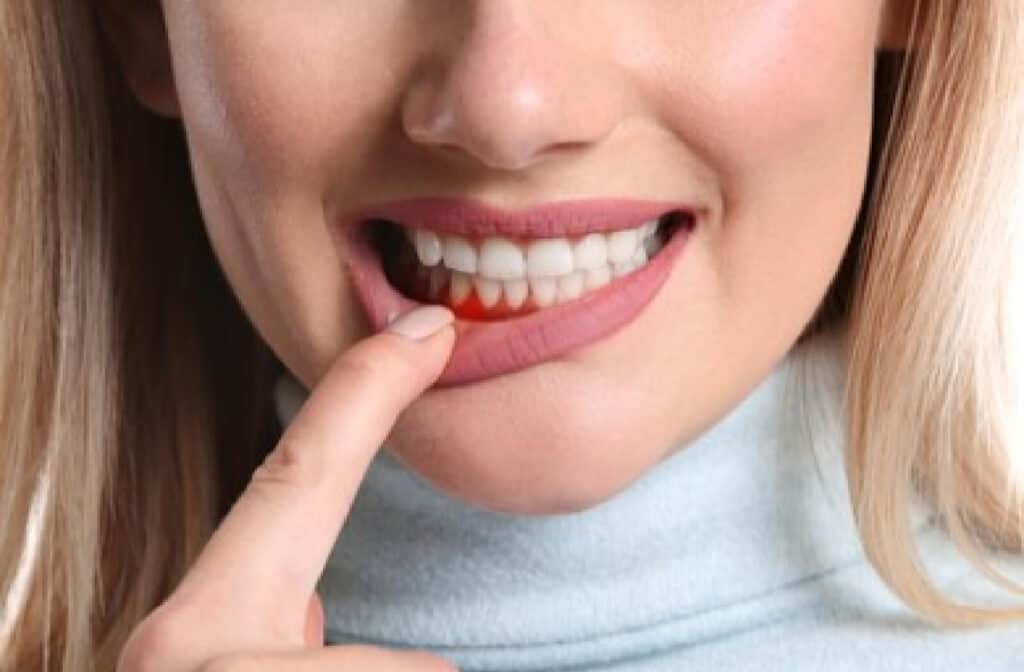Is Gingivitis Reversible?
When you think about dental care and oral health, tooth decay and gingivitis are most likely your two top concerns. Gingivitis is an inflammation of the gums usually caused by an overproduction of bacteria from the mouth and plaque buildup.
Without regular dental checkups and cleanings, gingivitis can go undiagnosed and worsen or progress to periodontitis. If caught early and depending on the severity, reversing gingivitis is possible.
We explain the cause of gingivitis, its symptoms, treatment, and measures to prevent or decrease your risk of developing it.
What Is Gingivitis?
Gingivitis is the early stages of gum disease that results from dental plaque, a naturally occurring sticky film containing bacteria that coats your teeth.
It’s normal for your mouth to have bacteria. However, when there’s an overgrowth of bacteria or plaque buildup, the release of acids can eat away at your enamel, the tooth’s outer covering.
Without proper oral hygiene, the plaque hardens to form tartar along the gumline. This leads to gum irritation, inflammation, and sometimes bleeding of the gums when you brush.
Untreated gingivitis can lead to the advanced stages of gum disease known as periodontitis. Periodontitis is more serious as it affects the gum tissue and the bone that keeps your teeth in place. In severe cases, it can lead to gum damage and tooth loss.
Causes of Gingivitis
Besides plaque buildup, which is the most common cause, other factors can increase your risk of developing gingivitis:
- Hormone changes—pregnancy, puberty, and menopause can make your gums more sensitive and increase their inflammatory response.
- Medications—some medications or prescription drugs can affect oral health by reducing saliva, which has a protective effect.
- Nutrition—too many refined carbohydrates and too little vitamin C can increase inflammation in gum disease.
- Illnesses—certain diseases, such as cancer or HIV, can weaken the immune system. Those with diabetes are at a higher risk of developing infections and cavities.
- Smoking—can make it harder for gum tissue to heal.
- Poor oral hygiene habits—insufficient brushing and flossing can make it easier for you to develop gingivitis.
- A family history of dental disease—can contribute to developing gingivitis.
Symptoms of Gingivitis
You can have gingivitis and not know it. Often gingivitis can be painless or have very few obvious signs. Here are the symptoms of gingivitis:
- Red or swollen gums; healthy gums are pink and firm
- Gums that bleed when you brush or floss.
- Sore gums
- Bad breath that doesn’t go away, caused by bacterial overgrowth
- Tooth pain or sensitivity
- Receding gums
- Loose teeth
- Deep pockets between teeth and gums
 How to Reverse Gingivitis
How to Reverse Gingivitis
If you notice the early signs of gum disease, such as red, swollen, or bleeding gums, visit your dentist as soon as possible. If gingivitis is caught early, it can be reversed with an improvement in oral hygiene. Otherwise, it can worsen into periodontitis—a chronic, irreversible inflammatory state.
Reversing gingivitis includes treatment to reduce swelling and bacterial growth to help you get back to healthy gums. And depending on the severity, preventing disease progression with either antibiotic medication or surgery.
Reversing gingivitis involves proper plaque control:
- Brush twice daily with fluoride toothpaste and replace your toothbrush every 3 months or when bristles are frayed.
- Floss daily to remove plaque in between teeth and below the gum line.
- Professional cleanings at least twice a year to remove plaque and tartar buildup on the tooth’s surface, below the gum line, and from hard-to-reach spots.
- Rinsing with an antibacterial mouthwash to fight plaque & bad breath and reduce bacteria buildup.
Other measures you can take to decrease your risk of gingivitis include health and lifestyle changes:
- Quit smoking. Smokers are more likely to get gum disease and have lower chances of successful treatments.
- Reduce stress. Long term stress can weaken the body’s immune system, make you more susceptible to infection, and make it harder for your body to fight infection.
- Maintain a healthy balanced diet. Foods high in sugar and starch feed the bacteria in your mouth, which release acids and attack your enamel. Eating foods high in antioxidants can help your body repair damaged tissue.
- Avoid clenching and grinding your teeth. The excess pressure or force from grinding and clenching can increase the rate at which the tissues that support your teeth are destroyed.
Reverse Gingivitis to Restore Your Gum Health
Consistency with your oral hygiene can prevent gingivitis or stop it from progressing. Your oral hygiene routine can include daily brushing, flossing, and scheduling regular dental cleanings.
If you’re concerned about the health of your teeth and gums and haven’t had a checkup or a cleaning recently, request an appointment with South Ancaster Family Dental today.

